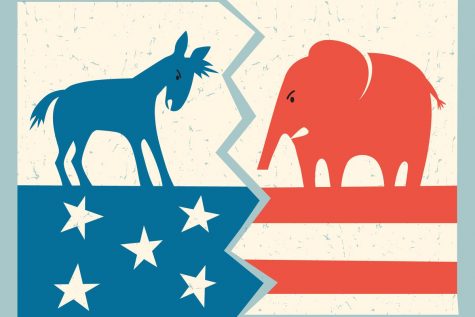The right to bear arms depends on an absolute—grammatically, anyways
September 30, 2019
The text of the Second Amendment is a disaster. Despite the fierce disagreements about its meaning and application, the problems of the actual wording are acknowledged widely. Justice Scalia even had to confront the interpretations of three scholars of the history of English in his decision of 2007 that confirmed the individual right to bear arms. The famous sentence contains a very old but relatively rare syntactical structure that has at times left readers baffled:
By punctuating the amendment as I did, I have already entered into the debate. Versions of the text with no, two, or three commas also exist dating from the 18th century. As the grammarians noted in their 2007 brief, the opening clause is an absolute, a construction that largely owes its existence in English to the influence of Latin. It is a very old element of Indo-European languages found in the earliest Greek, Latin, and Sanskrit texts, but it is dependent upon a system of cases in nouns and adjectives. Students of elementary Latin may cringe remembering the frequent use of the ablative absolute in that language. Since English has lost its Indo-European case structure, and had lost it well before the 18th century, absolutes in our language can only properly be distinguished by punctuation. Thus the decision about the commas noted above affects the interpretation of the meaning. Although the lack of cases in English militates against the survival of the absolute, the mimicking of the speeches of Cicero or Demosthenes or the histories of Livy or Thucydides has promoted its use in elevated speech, and Madison, Jefferson et ceteri were not adverse to presenting themselves as freestylin’ Ciceronians.
The technical meaning of the term ‘absolute’ is perhaps one reason why the legal community has avoided it, referring to the first clause as a “preamble” or “prefatory clause,” or even, sadly, a “purpose clause.” Those terms are all misleading and, in truth, wrong, as wrong as the daily mispronunciation of sine die by lawyers and judges across the country. For the record, an absolute, in the grammatical sense, has been freed (< absolvo) or loosed from direct grammatical connection to the main clause. The participle and noun of the absolute do not reappear in the main clause: in the Second Amendment “militia” and “being” are the core elements of the absolute; neither reappear in the main clause. In Latin, theoretically, they would be the items in the ablative case.
Taken as a whole, the absolute modifies the main clause; it defines the circumstances or context under which the main clause operates. The author views the absolute as a necessary qualifier for the primary statement, and only under the aegis of the absolute does the author consider the main clause to be valid. Its function is consequently much more restrictive than a preamble or a preface. Yet the exact nature of the qualification of the absolute on the main clause is left undetermined. Many, but not all absolutes, indicate a cause. They may also signify time; consider, for example: “With the sun having set, the vampires emerged.” First the suns sets; then vampires appear. A concession: “with the interest rate left unchanged, the stock market still rose,” or even a conditional requirement, “all things being equal, I’d rather be in Lovelton, PA.” The grammatical amici curiae of 2007 settled on a causal meaning for the absolute of the Second Amendment, suggesting “Since a well-regulated militia is necessary to the security of a free state…” They set aside temporal, concessive, or conditional applications of the clause. In defining the intent, one loses, however, the complexity of the sentence and the difficulty of the content, in my view.
Since our third example involves one of the few common uses in colloquial English, it may serve as a means to explore these functions more fully. The absolute sets out the circumstances under which the main clause holds true to the author, in this case, me. In my view, “if/when/since all things are equal, I’d rather be in Lovelton, PA.” The clause can be read conditionally, causally, or even temporally, and, I, as the author, cannot clearly distinguish between the three but would lean toward a conditional application. In my view, “if/when all things are equal, I’d rather be in Lovelton, PA.” Lovelton is an idyllic spot, with ancestral significance to the Sicks, in the Appalachian Mountains of northeastern Pennsylvania. Yet, if pressed, I would have to confess that all things are often not equal. Lovelton consists of one church, two bars, a crumbling Grange building, and maybe 100 residents, not counting the dead folk in the cemetery. All things are not equal: there are no Thai restaurants in Lovelton. One would have to travel about forty miles to Wilkes-Barre to enjoy a spicy Massaman curry. So, if I want that curry, I would have to abandon Lovelton. Once my hankering has been filled, once equality has been reset, I’m happy to return to familial fields near the village.
I hope that my example reveals the underlying ambiguity of an absolute. The author, by applying a restriction to the main clause, admits that there are circumstances in which the statement of the main clause does not hold true. In the case of the Second Amendment, the Framers provide a circumstance, certainly not a purpose nor necessarily a cause: “A well-regulated militia being necessary to the security of a free state…” As long as that circumstance is valid, the statement of the main clause is also valid to the authors: “…the right of the people to keep and bear arms shall not be infringed.” The matter for factual or legal interpretation is therefore whether a well-regulated militia is necessary to the security of a free state. It’s a statement loaded with words pregnant with implied meanings and consequences, crucial for the safety of both citizens individually and the commonwealth, far from my areas of expertise, and I would not dare to answer it definitively. Nonetheless the hypothesis demands frequent reconsideration, given the syntactical structure of the amendment: those well-regulated militiae may or may not have been necessary in the 18th century; they may or may not be necessary in the 21st; they may or may not be necessary in future apocalyptic or utopian eras. Those are the circumstances that citizens and the courts must ponder. What is more, Madison and his buddies would seem to admit that the Second Amendment will require such periodic re-interpretation. They did not use, “When,” “Since,” or “Although” but a classically-inspired syntactical structure that calls for thoughtful consideration.
















Patrick Sullivan '78 • Oct 16, 2019 at 6:29 pm
David Sick has produced an excellent article analyzing the grammatical implications of the language of the Second Amendment, and I suspect if Congress ever considers modifying the Second Amendment, similar discussions will take place.
However, very few of the rights as stated in the Constitution are truly absolutes. Examination of the decisions rendered by the Supreme Court of the United States reveals that Congress has the authority to modify Constitutional rights according to time, place, and manner.
If anyone has any doubts about the validity of this statement, consult an attorney specializing in Constitutional Law.
As to modifying the Second Amendment, Congress has already done so making it illegal for private citizens to own an automatic weapon (i.e. a submachine gun or an assault rifle such as an M-16).
Realistically, the United States will never evolve into a nation without firearms. Sidearms, rifles, and shotguns are part of American history and heritage, and long guns are instrumental in the suppression of destructive animals such as feral pigs which are decimating agricultural properties they invade.
Long guns are also necessary for hunting for both recreation, wildlife management, and, for some people, providing food for the household. State Wildlife Management experts allot a specific number of hunting licenses each year to allow hunters to reduce the various animal populations to a desired size so that the populations do not outgrow their food supply. When an animal population outgrows the food supply available, the entire animal population suffers becoming malnourished and diseased. If the various herds are not culled each year, animal deaths nearing extinction become possible.
Personally, the prevalence of handguns, available to so many people who lack the self-control to wield such a deadly device or people who legally cannot own a firearm, is extremely disturbing. When a traffic accident or even something as incidental as accidentally cutting someone off in traffic can lead to a road rage shooting, something clearly must be done.
What rights are you willing to sacrifice to keep firearms out of the hands of dangerous people?